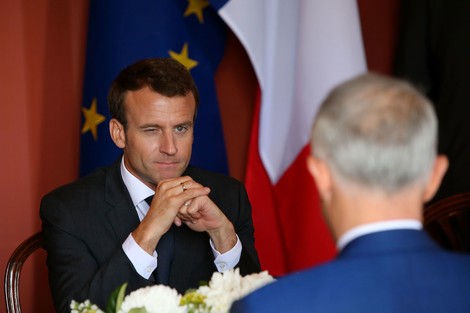Your podcast discovery platform
Curious minds select the most fascinating podcasts from around the world. Discover hand-piqd audio recommendations on your favorite topics.

piqer for: Global finds Globalization and politics Technology and society
Turkish journalist, blogger and media expert. Writes regular columns for The Arab Weekly and contributes to Süddeutsche Zeitung, El Pais and the Guardian. An European Press Prize Laureate for 'excellence in journalism' in 2014, Baydar was awarded the prestigious 'Journalistenpreis' in Germany by Südosteuropa Foundation in February 2018.
Macron's Bill On Fake News Raises Doubts On Control Over French Media
What is striking is the contradiction between the image of Emmanuel Macron and what he intends to do. Hailed often as the 'great hope for the ailing democracies in the world', the French President is now busy in what is seen by his critics as curbing media freedom at home.
It has to do with his intentions to introduce legal remedies in what he sees as 'fake news' – a broad and ambiguous term per se.
The bill proposed by Macron seeks to fight “fake news” through various legal means but without providing a clear definition of the phenomenon — which may likely prove to be the most difficult obstacle to overcome.
Many experts argue that new laws may be unnecessary in France, where there are various laws that prohibit or punish what is today defined as 'fake news'. Others think that the media landscape already operates under stricter conditions than necessary. But Macron's move is real, and seems assertive.
The bill proposed by Macron would target a new category of fake news not currently covered by the existing law. Macron proposes rapid intervention to report, identify, and remove fake news by creating new implementations of référé, a special procedure that allows one party to refer a case to a single judge to ask for a provisional order.
This proposal raises the question of what constitutes fake news. This is by and large raising questions about the definition of the term, but also suspicion over the arbitrary use of accusations, and censorship.
How would this law be implemented if, for example, a French politician goes too far in publicly deriding his or her opponents or a foreign leader, as British Foreign Minister Boris Johnson famously did when he published a poem insinuating that Turkish President Recep Tayyip Erdogan fornicated with goats?
'Macron’s proposed legislation has no answer. It will not solve the problem of fake news and may indeed amplify it,' argues this article.
